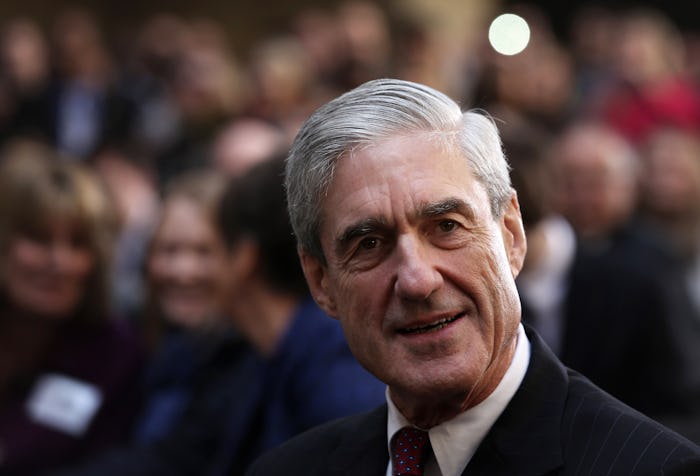News

How An Independent Prosecutor & Special Counsel Differ
An outside lawyer has been called upon to lead a sensitive political investigation in Washington, but many are giving him an incorrect title in passing conversation. So what's the difference between an independent prosecutor and special counsel? Though the terms are often used interchangeably, their histories are a bit different, and their abilities aren't quite identical.
Robert Mueller, a former director of the FBI, was appointed to manage the investigation into the president's campaign's ties with Russia this week after President Donald Trump fired then-Director of the FBI James Comey (over the investigation itself, some have argued). The call was made by deputy attorney general Rod Rosenstein in hopes that "the American people [will] have full confidence in the outcome.” Receiving mounting pressure from Democrats especially, Rosenstein explained: "It is in the public interest for me to exercise my authorities and appoint a special counsel to assume responsibility for this matter." Mueller, therefore, will serve as an impartial, outside observer — and prosecutor, if need be.
When considering the two titles, it's important to note that independent prosecutors and special counsels have the same goals. They're both special investigators used to eliminate a conflict of interest between the investigators and the investigated. The difference, though, exists in the time that the respective terms have been used. Thus, there are a few legislative differences within those histories.
Before there were independent prosecutors, there were special prosecutors, the last of whom was appointed under former President Richard Nixon's attorney general in order to probe Nixon's Watergate allegations. But, when the special prosecutor subpoenaed the tapes holding Nixon's White House conversations, Nixon simply fired the prosecutor and named a new one. Thus, a new set of rules was obviously needed, and the U.S. government was sure to cover all their bases this time.
Enter: The independent counsel. Congress set some firmer guidelines in its second iteration, allowing the attorney general to insist upon a three-judge panel to select a prosecutor. Independent counsels were granted the right to prosecute as they saw fit, according to findings from their investigations. If needed, Congress and the attorney general were both able to remove an independent counsel. Established under the Ethics in Government Act of 1978, the law wasn't renewed in 1999, and a new job description (and title) was required.
Here's where special counsels come in. Under existing law, both the attorney general and Congress can appoint special counsels. Special counsels are able to prosecute, and can be removed by the attorney general if need be. Mueller is, as mentioned, special counsel for the Trump-Russia investigation. The last special counsel was appointed in 2003 by — get this — James Comey, to investigate a CIA operative's identity leak.
This time around, Mueller will be the one to prosecute, should his investigation necessitate that in the end. Choosing a special counsel is, in essence, choosing a special or independent prosecutor, but as laws have been rewritten, new terms are needed. Yes, it's a bit confusing, but distinct terms help clarify things in the long run.